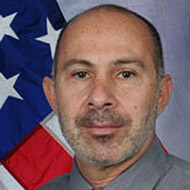- HOME
- PSYCHOLOGICAL SERVICES
- ONLINE COURSES
- Our Partnership Begins When You Purchase an Online Course
- Get to Know Dr. D’Arienzo, Relationship Expert
- Florida Premarital Preparation Online Course
- Georgia Premarital Education Online Course
- TwogetherinTexas Premarital Online Course
- Tennessee Premarital Preparation Online Course
- Minnesota Premarital Education Course Online
- Oklahoma Premarital Counseling Online Course
- South Carolina Premarital Preparation Course
- West Virginia Premarital Education Course
- Online Marriage and Relationship Tune Up Course
- Florida DCF Certified Parent Education and Family Stabilization Online Course
- Georgia Qualified Parent Education and Family Stabilization Online Course
- Texas Qualified Parent Education and Family Stabilization Online Course
- High Conflict Co-Parenting Online Certificate Course (8 Hours)
- Online Anger Management Four Hour Course (Level 1)
- Online Anger Management Eight Hour Course (Level 2)
- Sexual Harassment Online Training
- BUSINESS & PERFORMANCE PSYCHOLOGY
- CLINICAL, COUPLES, & FAMILIES
- ADHD Treatment & Evaluation Services
- Anger Management
- Anxiety Treatment & Evaluation Services
- Borderline Personality Treatment Services
- Cognitive Behavioral Therapy (CBT) Self-Help
- Couples Counseling and Marital Therapy
- Consent for Psychological Services for Minors Post-Divorce
- Depression Treatment Services
- Infidelity Recovery
- Jacksonville Counseling and Psychology
- Military Psychology & Tricare
- Narcissistic Personality Treatment Services
- Online Counseling
- Psychoeducational Testing
- Psychological Testing and Assessment
- Psychotherapy & Counseling
- FORENSIC PSYCHOLOGY & EXPERT TESTIMONY
- LIFE COACHING & EXECUTIVE COACHING
- MMPI TESTING & ASSESSMENT FOR SECURITY AND LEO
- CPI Police and Public Safety Assessment
- G License Psychological Testing
- Online Psychological Testing for Armed Security Guards and Personal Protection Officers
- MMPI Texas Level III CSO and IV PPO Psychological (ONLINE)
- Requirement for Texas Security License Applicants: MMPI Evaluation
- Level 3 Security Guard New Mexico Online MMPI Psychological Evaluation
- PSYCHOLOGICAL PUBLIC DISABILITY QUESTIONNAIRES (DBQ)
- ONLINE COURSES
- TEAM
- D’Arienzo Psychological Group Overview
- Dr. Justin D’Arienzo, Psy.D., ABPP
- Mario Decunto, LMHC
- Dr. Amy Hartley, Ph.D.
- Dr. Erica Janson, Psy.D.
- Alan Lipzin, LMHC
- Cynthia Salameh, Esquire
- Wendy Monger, Tutoring Specialist and Academic Coach
- Dr. Michael Nackashi, Psy.D., Clinical Psychologist
- Joseph Zichi, LCSW
- Mack, Roman and Roxy D’Arienzo
- MERCH & SOCIAL MEDIA
- BOOKS
- APPT REQUEST
Anxiety Information and Treatment Services
Anxiety Treatments at D’Arienzo Psychological Group in Jacksonville
We provide psychotherapeutic and counseling interventions to assist you with your anxiety condition. Therapy should always be the first line intervention for anxiety disorders, as anxiety is a natural response to traumatic or stressful experiences and learning the skills to cope with these experiences should be pursued rather than just medicating one’s self. Avoidance is a key symptom in anxiety, and often medication allows us to avoid a situation that needs to be changed or medication facilitates one’s avoidance in learning to requisite life skills to manage stressors. However, there are times when individuals require medication in addition to psychotherapy to resolve their anxiety condition.

At D’Arienzo Psychological Group, we offer cognitive behavioral therapy (CBT), Rational Emotive Behavioral Therapy (REBT), Exposure Therapy (ET), and Eye Movement Desensitization and Reprocessing (EMDR). All these psychotherapeutic treatments have empirical support to treat anxiety conditions. If medication is required for you, we will make the appropriate medication referral to a psychiatrist, pediatrician, or family physician.
What is Anxiety?
Anxiety may be characterized by an intense feeling of worry, nervousness or unease. Everyone worries but if the unease is so great that one cannot continue with everyday life, they might have an anxiety disorder. There are several types of anxiety conditions each with overlapping and unique cognitive, emotional, behavioral, and physiological symptoms.
Common Types of Anxiety Disorders and Related Treatments
Panic Attacks
One type of anxiety disorder is having panic attacks. A panic attack is a sudden feeling of intense fear which triggers unnecessary physical reactions. Some symptoms of a panic attack are sweating, shaking and trembling, shortness of breath, blurred vision, nausea and chest pains. Cognitive behavioral therapy (CBT) is one of the most effective ways to treat panic attacks. During CBT, the patient receives relaxation training, cognitive restructuring, mindfulness training, exposure treatment and stress reduction exercises. Through all of these processes, the patient becomes aware of the thoughts that can lead to an attack and learns how to navigate through them. Some medications that are commonly prescribed for patients suffering from panic attacks are Prozac and Zoloft.
Obsessive-Compulsive Disorder (OCD)
Someone with OCD suffers from obsessions which are unwanted and or disturbing feelings, thoughts and images. They then engage in compulsions which are repetitive behaviors or rituals to reduce the unwanted feelings, thoughts or internal images. These rituals bring only temporary relief. The person must follow through with their rituals, or they will have intense anxiety. Further, OCD is often accompanied by depression or eating disorders. A form of cognitive-behavioral therapy that is very effective for treating patients with OCD includes response prevention. The individual learns to “sit” with their obsession and avoids engaging in the ritual that would temporarily reduce the obsession. If done effectively, eventually this link is permanently extinguished, and the person no longer maintains that obsession and related compulsion. Another type of CBT that is helpful with OCD is Rational Emotive Behavioral Therapy (REBT). The main goal of this therapy is to help the patient see how the thoughts they have upset them and are irrational. The person learns to produce more effective and balanced thoughts which in turn leads to less anxiety, less obsessions, and less acting out compulsively. REBT empowers the OCD sufferer to take charge and lead a fuller life. The patient must acknowledge any issues, take emotional responsibility and be determined to change. Escitalopram and Anafranil are typically prescribed to someone with OCD.
Post-traumatic stress disorder (PTSD)
PTSD is a well-known anxiety disorder consisting of persistent emotional and mental stress. The stress is usually a result of an extreme psychological shock or an injury. Common symptoms of PTSD are distress, disturbances of sleep, vivid recall of the experience, and avoidance of situations that remind one of feeling powerless and/or the initial traumatizing event. Cognitive-behavioral therapy is an effective treatment for PTSD. Another form of therapy used to treat PTSD is prolonged exposure therapy. This involves exposing the patient to the source of their anxiety without the possibility of any danger by imagining the event over and over or being presented with a similar circumstance in a safe environment to recondition the individual by breaking the link between the stimulus and their reaction. Over time, the patient shows less and less emotional response to the experience. Another type of treatment for PTSD is Eye Movement Desensitization and Reprocessing (EMDR). This intervention allows the person to preprocess a traumatic event converting it into their historical record rather than a memory that continues to be experienced in the present. Commonly prescribed medications for PTSD are Sertraline, Fluoxetine and Paroxetine.
Other Common Anxiety Disorders
Other common anxiety disorders include Phobias, Agoraphobia, and Generalized Anxiety Disorder (GAD). The first line of treatment for anxiety disorders should be cognitive behavioral treatment. If CBT, counseling, or other psychotherapeutic intervention does not reduce one’s symptoms, medication may be added to the intervention. Anxiety disorders are very difficult to treat because avoidance is typically a symptom, and to effectively treat the disorder, one must learn not to avoid the feared situation. Therefore, to treat this disorder, the individual must be compliant with treatment for treatment to be effective and not protracted.
Anxiety Specialists at D’Arienzo Psychological Group




Ready to Make an Investment in Your Life?

This article’s content was provided to D’Arienzo Psychological Group by our psychology intern and University of North Florida graduate, Kaela Robertson, BA.





